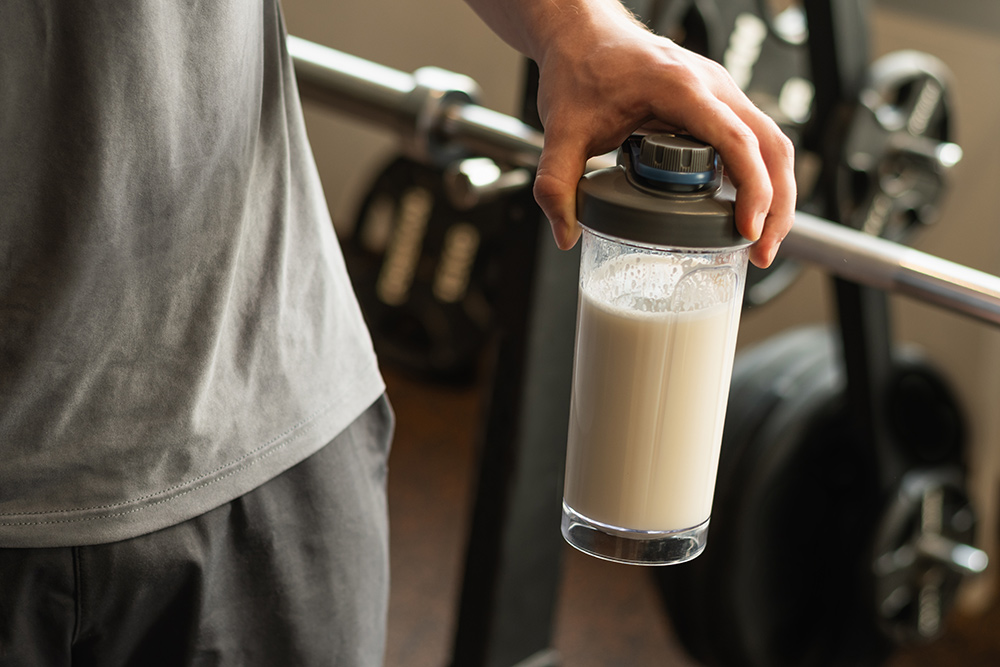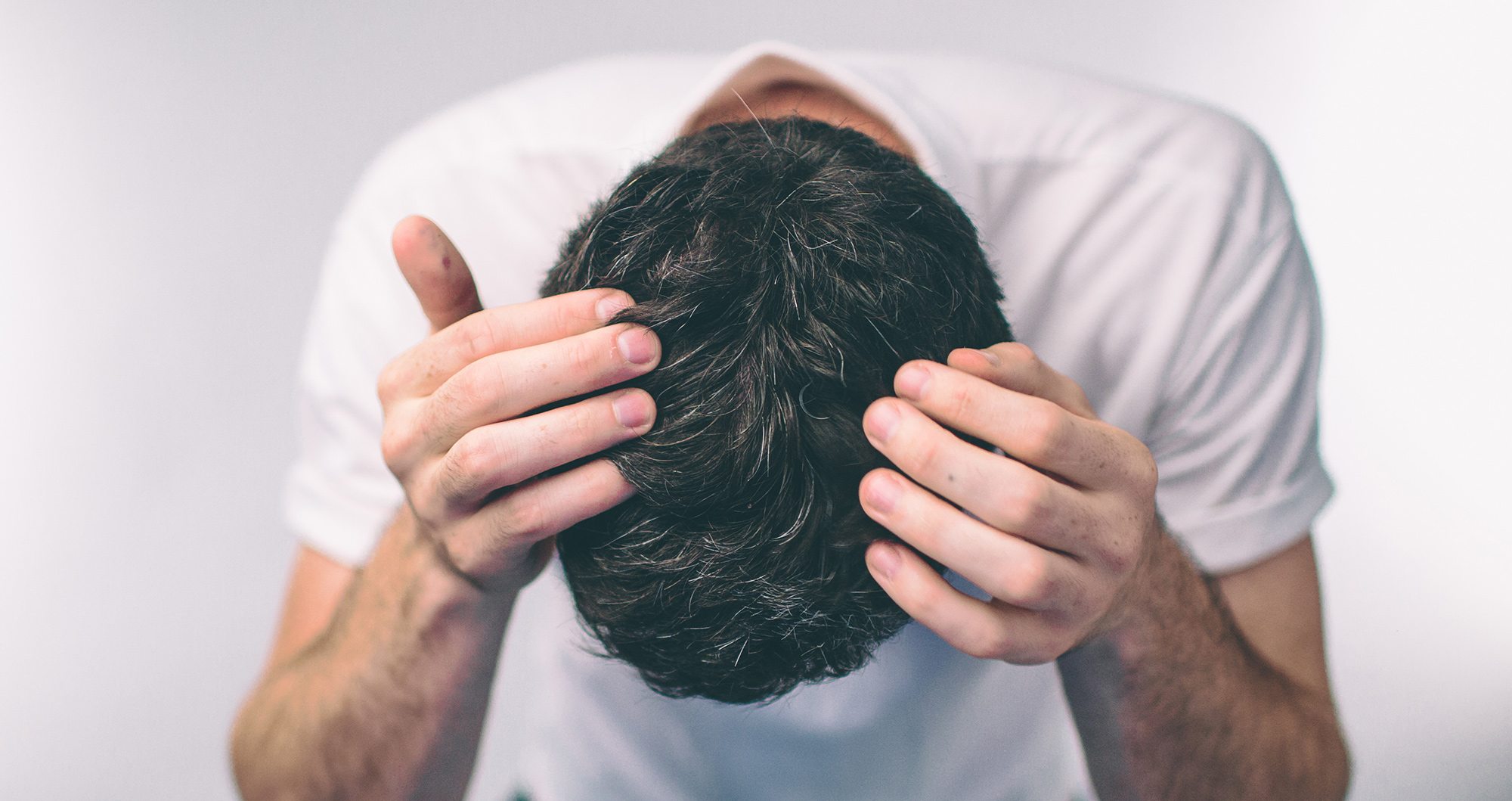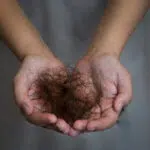Creatine vs. Your Hairline: Should You Be Worried?
Last updated on October 9, 2025
Creatine is one of the most widely used supplements in the fitness world. Athletes, bodybuilders and casual gym-goers often rely on it to improve strength, muscle endurance and recovery. Yet despite its popularity and well-documented benefits, there has been a lingering question we often get asked at our hair loss clinic in Raleigh, NC: Does creatine cause hair loss?
For men and women who already worry about thinning hair, the idea that a scoop of powder in their shaker bottle could affect their hairline is unsettling. The science, however, tells a more nuanced story. To understand the relationship between creatine and hair loss, we need to separate fact from speculation and look closely at what the research really shows.
What Is Creatine and Why Do People Take It?
Creatine is a naturally occurring compound found in muscle cells. Your body makes some creatine on its own and also gets it from foods like red meat and fish. When stored in the muscles, creatine helps produce energy during short bursts of high-intensity activity such as sprinting or lifting weights.
Supplementing with creatine increases the amount of creatine phosphate in your muscles, which boosts performance in strength-based and explosive activities. Dozens of studies have shown that creatine supplementation can improve muscle mass, workout recovery and even aspects of brain function. It is one of the most researched sports supplements in the world, and its safety profile is considered strong when used in recommended doses.
Still, its connection to hormones, particularly dihydrotestosterone (DHT), is what brings the question of hair loss into the conversation.
Where the Creatine and Hair Loss Debate Began
The debate about creatine and hair loss traces back primarily to a single study published in 2009. This small trial involved 20 male rugby players who supplemented with creatine for three weeks. Researchers measured hormone levels and reported that while testosterone levels remained the same, DHT levels increased by roughly 40% after creatine supplementation.
DHT is a derivative of testosterone that is known to play a role in male pattern baldness. It binds to hair follicle receptors in genetically susceptible individuals, shortening the growth phase of the hair cycle and leading to miniaturization of the follicles over time. Because of this, the idea that creatine could elevate DHT levels raised concerns about its impact on hairlines.
But it is important to note the limitations of that study. It was small, short, and its findings have not been replicated in larger or longer trials. No subsequent studies have confirmed that creatine consistently raises DHT or directly causes hair loss.
Does Creatine Cause Hair Loss?
So, does creatine cause hair loss? Based on the available evidence, the answer is not clear-cut. There is no direct proof that creatine supplementation leads to hair shedding or balding. The majority of studies on creatine have focused on muscle performance, recovery and metabolic effects rather than hair health.
The link between creatine and hair loss remains speculative, built largely on the 2009 study and anecdotal reports from athletes. People who are already predisposed to male or female pattern hair loss may worry that creatine could accelerate the process, but science has yet to establish a solid connection.
If you are genetically prone to hair thinning, DHT is already playing a role. Whether creatine makes that worse is still up for debate. For now, the more accurate statement is that creatine has not been proven to cause hair loss, though research is ongoing.
Dr. Arthur Zacco has noted during his 30 years of experience with hair transplantation that people who take creatine supplementation and lift weights lose both transplanted hair and original hair, which is very unusual. Dr. Arthur Zacco can comprehensively evaluate athletes who are taking creatine supplementation and have hair loss and make recommendations focused on their individual needs.
High free and total testosterone, whether or not DHT is elevated, can result in significant hair loss of original and transplanted hair, which is very unusual. So it is very important for an experienced physician in hair restoration and athletics to evaluate your testosterone, estrone, estradiol, DHT, thyroid levels, etc, when evaluating your hair loss.

Current research has not proven a direct link between creatine and hair loss, with only one small study suggesting a possible rise in DHT, while genetics and hormones remain the primary causes of thinning hair. If you’re concerned about hair loss or balding, book an appointment with a leading hair loss specialist today.
Other Factors That Influence Hair Loss
When people notice shedding after starting creatine, they may connect the dots too quickly. Hair loss has many potential causes, and timing can make creatine appear guilty when it may not be. Common contributing factors include:
- Genetics: Family history is the strongest predictor of male and female pattern baldness.
- Hormonal changes: Shifts in testosterone, DHT, or thyroid hormones can affect growth cycles.
- Stress: Both physical stress (like intense training) and emotional stress can cause temporary shedding.
- Nutrition: Deficiencies in protein, iron, zinc, or vitamins like D and B12 can impact hair growth.
- Medical conditions: Autoimmune conditions, scalp infections, or illnesses can all lead to thinning.
Because these factors often overlap, blaming creatine alone oversimplifies the issue. It is possible for someone to begin losing hair while taking creatine, but that does not mean the supplement is the root cause. At AZ Hair Restoration, Dr. Arthur Zacco is also certified in Anti Aging Medicine, which encompasses hormonal replacement therapies. So your complete hormonal evaluation can be extensively evaluated and treated if needed.
Address Hair Loss Concerns the Right Way with a Hair Restoration Specialist
If you are worried about thinning hair or changes to your hairline, visiting a specialist is the best way to get clear answers. At AZ Hair Restoration in Raleigh, NC, Dr. Arthur Zacco and our experienced team provide thorough consultations and proven treatments, including FUE hair transplants and FUT hair transplants, Growth Factor Therapy, exosomes treatment, and more. Every treatment plan is tailored to your needs, giving you the best chance at lasting results. Don’t wait for hair loss to progress further. Book your free consultation today and discover how we can help restore your hair and confidence.
FAQs
How fast does creatine cause hair loss?
There is no clear evidence showing how fast creatine might cause hair loss, if at all. Hair thinning usually occurs gradually over years due to genetics and DHT sensitivity. If you are noticing more shedding, creatine may not be the main factor. AZ Hair Restoration specializes in diagnosing the root cause of hair loss and providing proven treatment plans. Schedule your free consultation to discover what is really affecting your hairline and how to permanently fix it.
Does creatine cause baldness?
Creatine has not been proven to cause baldness. Baldness is typically the result of hereditary conditions like male or female pattern hair loss. Even if creatine influences hormone activity, it does not directly cause someone to go bald. At AZ Hair Restoration, we assess whether genetics, hormones, or lifestyle factors are contributing to your hair concerns. Book a free consultation online with Dr. Zacco and discover effective options for restoring your hair.
What happens if you take too much creatine?
Taking too much creatine can lead to bloating, digestive discomfort, or water retention. Very high doses over long periods may stress the kidneys, but hair loss is not a proven side effect. If you are experiencing hair thinning, AZ Hair Restoration can help identify the true cause and provide personalized treatment. Book your free consultation with our expert team in Raleigh, NC.
Is DHT the reason creatine is linked to hair loss?
It could be. The concern about creatine and hair loss comes from one study suggesting creatine might increase DHT levels. DHT can shrink hair follicles in people genetically sensitive to it, leading to thinning. However, no studies have directly shown that creatine causes hair loss. If you are concerned about DHT and your hairline, AZ Hair Restoration offers non-surgical treatments and hair transplant procedures designed to block its effects and restore growth. Contact us for a free consultation in Raleigh, NC. Remember, hair loss can be the result of many, many, many different causes, and DHT is just one of many possible causes of hair loss. AZ Hair Restoration can perform a comprehensive and individualized evaluation.
What should I do if I’m losing hair while taking creatine?
If you are losing hair while taking creatine, first consider family history, stress, nutrition and other health factors. Stopping creatine may not reverse shedding if genetics are involved. The best option is to consult with a hair restoration specialist. At AZ Hair Restoration, we provide advanced hair transplant procedures, Growth Factor Therapy and personalized treatment plans. Contact us today for a free consultation with Dr. Zacco in Raleigh, NC, to learn how we can help restore your hair.








